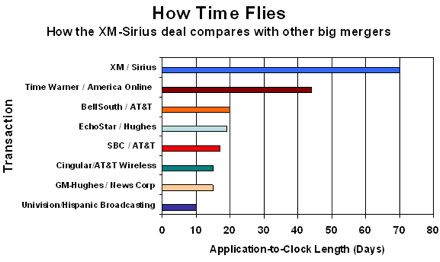The rag-tag army myth has made its return — this time in a front-page story in the Washington Post. In case you don’t remember, I wrote several times last year (here, here, and here) on the persistent myth that advocates of net neutrality were an outnumbered and outgunned “‘rag-tag” army fighting against the odds. The idea of course, is preposterous — the firms supporting neutrality regulation are among the largest on Earth.
Preposterous or not, the Washington Post picked up the theme today in a piece on the FCC’s 700 Mhz auction, writing that “Google’s 12-person Washington team, based in temporary quarters on Pennsylvania Avenue, has aggressively confronted the legions of lobbyists behind the two telecom behemoths [Verizon and AT&T].
One can just imagine the poor, outnumbered Googleers fighting off endless hordes of telecom company lobbyists. Things are looking desperate, they take stock of their resources and find they are down to their last… $160 billion.
That’s right, Google’s market capitalization tops $160 billion. That’s larger than Verizon (though less than AT&T). By any meaure, Google is one of the largest corporations on earth. While perhaps new to the Washington policy world, it’s hardly outgunned in terms of resources. This is a company that pledged last week to bid $4.6 billion for spectrum if the FCC adopted the regulations it wanted. As Everett Dirksen might have said, $4.6 billion here and $4.6 million there and pretty soon you are talking about real money.
Don’t get me wrong — Google has every right to its wealth, it earned it. And I have nothing against their DC team, who all seem like nice fellows. But can we please call a halt to this game of “who’s the underdog?” These guys are big cats, and underdog’s cape would just look silly on them.


 The Technology Liberation Front is the tech policy blog dedicated to keeping politicians' hands off the 'net and everything else related to technology.
The Technology Liberation Front is the tech policy blog dedicated to keeping politicians' hands off the 'net and everything else related to technology.